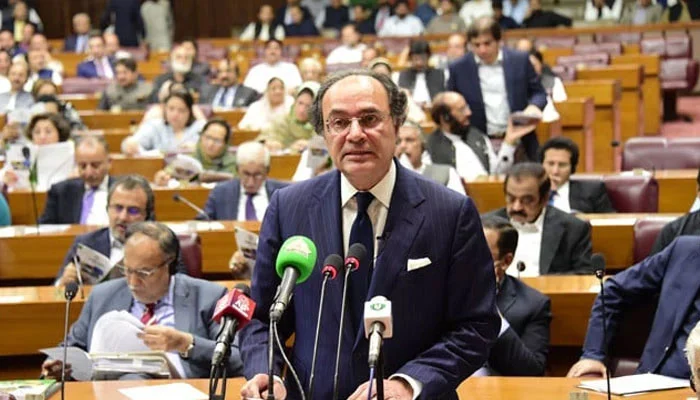Finance Minister Muhammad Aurangzeb on Wednesday described Pakistan’s fast-rising population and climate crisis as “existential issues” that must be urgently addressed if the country is to unlock its true potential.
Speaking to members of the business community in Karachi, Aurangzeb said Pakistan could not progress unless it tackled both challenges head-on. “I am very clear: we cannot realise the potential of this country unless we address two existential issues — population and climate change,” he remarked.
Pakistan’s population now stands at over 251 million, according to the World Bank, which puts the country’s annual population growth rate for 2024 at 1.5 per cent. The government’s 2023 census recorded a rise of 2.55 per cent, from 207.7 million in 2017 to 241.5 million in 2023.
The minister stressed that population growth was not merely about numbers but also connected to child stunting, learning poverty, and the large number of girls out of school. “These are all areas on which the federation and the provinces have to work together,” he said.
On climate change, Aurangzeb urged practical action instead of rhetoric. “Only saying that we do not make emissions but have to adapt — so demonstrate it,” he said, referring to Pakistan’s frequent assertion that it contributes less than 1 per cent to global carbon emissions but suffers disproportionately from climate-induced disasters.
“We have funding. First utilise the funding we have,” he added in response to a reporter’s question about climate financing.
Aurangzeb noted that while economic issues were “immediate” and could be solved within a few years, the threats of climate change and population growth were “existential” and demanded urgent action “now.”
Responding to another question, Aurangzeb reaffirmed the government’s commitment to deregulating the wheat and sugar sectors, saying the policy direction was “very clear.” “My view and that of the prime minister and the cabinet is very clear that the government should opt out of whatever matters it can,” he said.
He explained that while wheat carried a strategic reserve element due to its role as a staple food, the sector otherwise should also be deregulated. “Both these policies are coming,” he confirmed.
The government last month unveiled the ‘Wheat Policy 2025–26: Transitioning to a Market-Based System,’ which introduces a minimum support price to protect flood-hit farmers. “There was a situation due to the floods this time; otherwise, they (policymakers) did the right thing,” Aurangzeb said.
He emphasized that deregulation must be “end-to-end,” adding, “It cannot happen that we deregulate a certain element in the value chain but maintain control over another. The government has to get out of the entire value chain — that’s where we are headed.”
The minister also acknowledged losses in rice exports this year after flood damage to Punjab’s fields, but said the sector was still performing strongly, with agricultural exports hovering between $3–4 billion.
Discover more from Brackly News
Subscribe to get the latest posts sent to your email.



